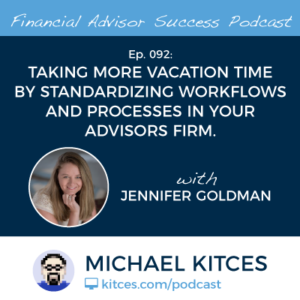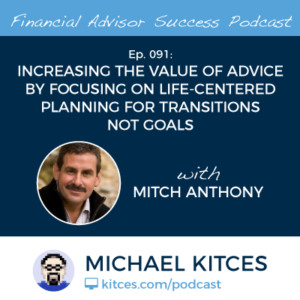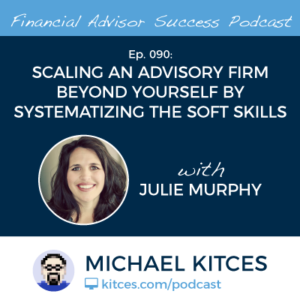 Welcome back to the 91st episode of the Financial Advisor Success podcast!
Welcome back to the 91st episode of the Financial Advisor Success podcast!
This week's guest is Jennifer Goldman. Jennifer runs an eponymous practice management consulting firm based in Boston that works intimately with half a dozen advisory firms at a time on their operations, technology, workflows, and processes.
What's unique about Jennifer, though, is that, before she began working as a practice management consultant on operations issues, she had a career as a financial advisor herself and then transitioned to operations leadership roles at two more advisory firms before eventually deciding to go out on her own as a consultant to work with even more advisory firms and operations.
In this episode, we talk in depth about what it really means to adopt and implement workflows and processes in your advisory firm. Why an advisor CRM system should operate as the central hub of the advisory business, the 100-client capacity and 5 employee capacity in multi-advisory firms that eventually forces every growing advisory business to start formally adopting standardized processes and procedures, and why exactly it's so important to do so in order to sustainably grow and scale an advisory business, or simply to finally find the time to take a vacation as an advisory firm founder.
We also talk about Jennifer's operation consulting process with firms, that starts with formalizing the roles and responsibilities of everyone in the firm, and then goes to a technology audit of all the tools the advisory firm already has, and only then begins to focus on how to better integrate the available technology tools, recognizing that in today's environment, the real blocking point for most firms on technology is not a need to get better tech tools, but simply a need to adopt better systems and processes to use the technology the firm already has.
And be certain to listen to the end, where Jennifer shares her own journey of building a consulting practice into a multi-consultant business, and why she ultimately decided to scale the business back to his solo consulting firm, not because it wasn't feasible to scale the consulting business, but simply because in the end, she wanted to right-size the business to let her spend less time managing people and more time working with the advisory firm clients that she wanted to work with in the first place. A lesson I think that is particularly relevant for any advisor who finds themselves unhappy in a successful business because they're spending more time in management and less time with clients than they ever expected when they first launched the firm.
Read More...

 Welcome back to the 91st episode of the Financial Advisor Success podcast!
Welcome back to the 91st episode of the Financial Advisor Success podcast! Welcome back to the 90th episode of the Financial Advisor Success podcast!
Welcome back to the 90th episode of the Financial Advisor Success podcast!
